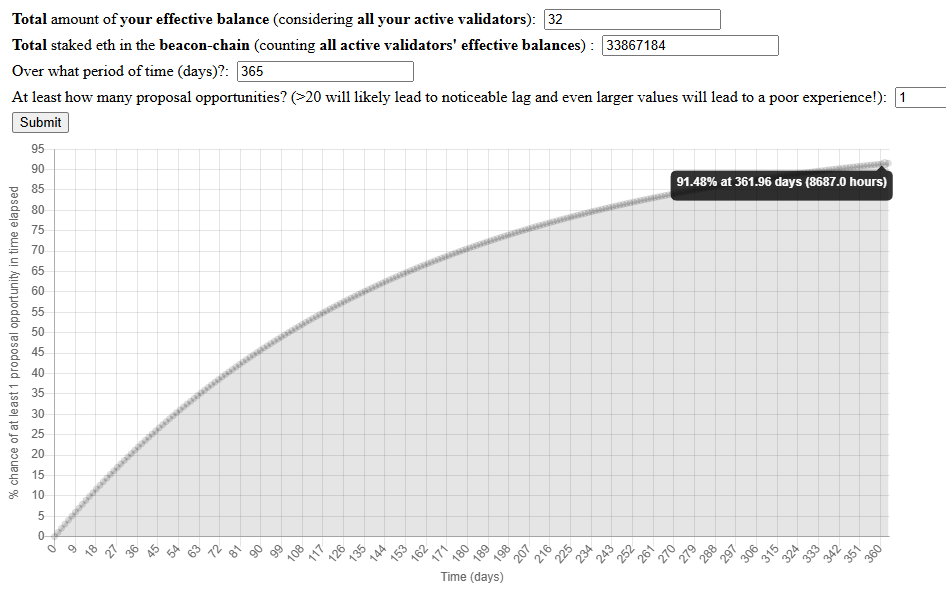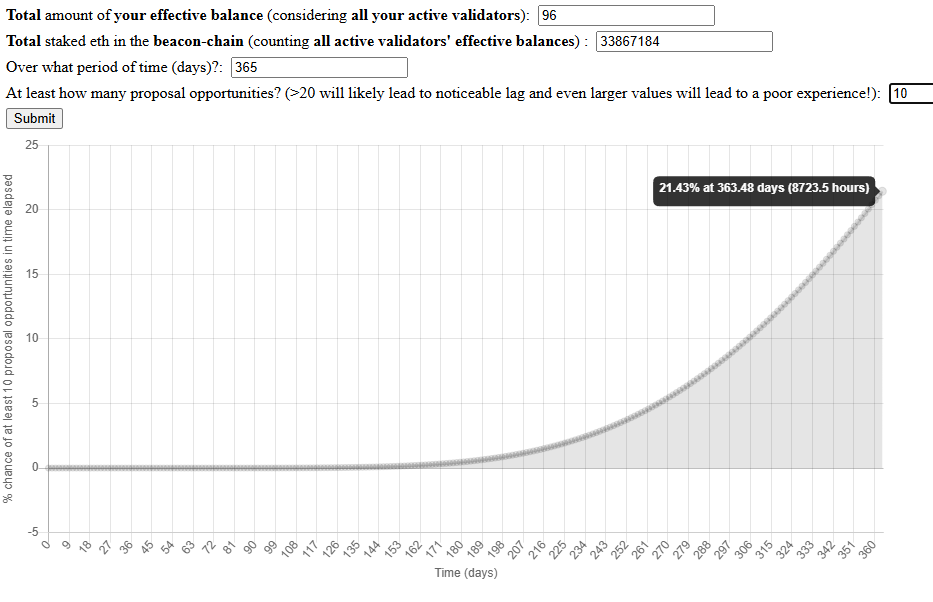 I have been engaged in Ethereum POS mining since the very beginning of the beta test, namely since December 2020. I update the server software with constant frequency, and I also constantly have to update the server itself, increasing RAM and SSD. And over the past year, I am not very happy with the results of the ETH validator, because it has been almost a year since my validator found a block on the network, although the average time to find a block for each validator is 146 days. I was wondering what percentage of losers I got into and what is the most interesting thing, such a service for verifying the success of POS mining of ether already exists.
I have been engaged in Ethereum POS mining since the very beginning of the beta test, namely since December 2020. I update the server software with constant frequency, and I also constantly have to update the server itself, increasing RAM and SSD. And over the past year, I am not very happy with the results of the ETH validator, because it has been almost a year since my validator found a block on the network, although the average time to find a block for each validator is 146 days. I was wondering what percentage of losers I got into and what is the most interesting thing, such a service for verifying the success of POS mining of ether already exists.
This service is called "ETH2: Probability of Proposed Opportunity" and can be found by domain name: proposalprobab.web.app
The user interface evokes nostalgia from the 90s and the then-breakthrough HTML 1.0 technology from 1993.
But most importantly, I still found out that as many as 8.5%, or about 90,000 validators, were the same "lucky ones" who did not find a single block during the entire mining year.

Well, that's a little encouraging, you can feel the brotherly shoulder and the voices of support.
The second point that interested me from this analysis is the geometric increase in the chance of finding a block with an increase in the number of validators. For example, having 1 validator, the chance of finding 10 blocks at once in one year is 0.03%. And if there are not 1, but 3 validators, then the chance of finding 10 blocks in a year will not be 0.09%, as I thought earlier, but a significant 21.5%!!!

The conclusion is that it is not very profitable to maintain one validator in the current reality, especially considering that it can take more than a year to search for one block.
Conclusion: If you are considering going into POS mining of ether, then I recommend running several validators on the same server immediately.









